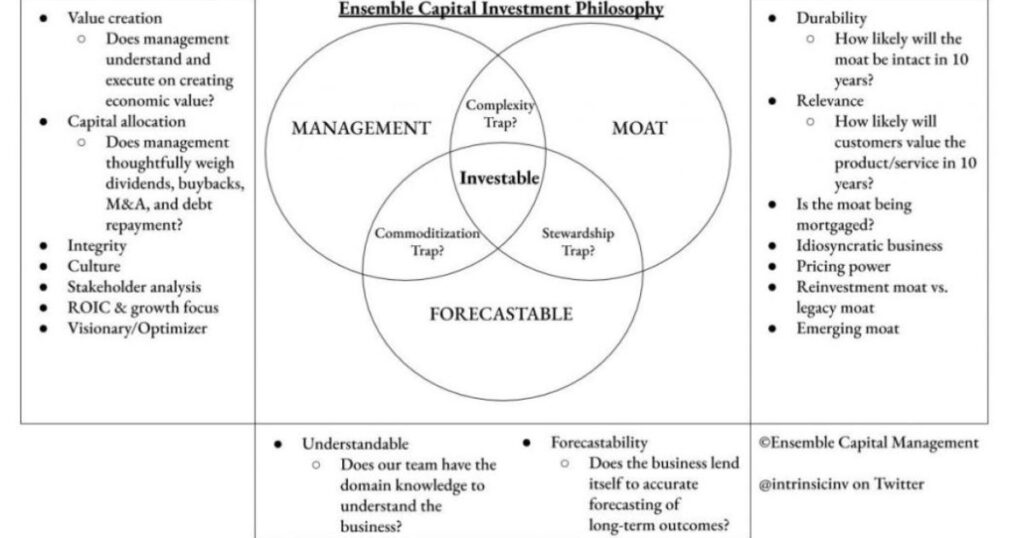Washington DC’s condominium market is a complex ecosystem of individual owners, small-scale investors and large investment companies. The latter group plays a significant role in shaping the city’s housing landscape influencing everything from property values to rental rates.
Understanding which investment companies own condos in DC provides valuable insights into market trends, investment strategies and the overall health of the city’s real estate sector.
This knowledge is crucial for potential investors policymakers, and residents alike as it sheds light on the forces driving one of the most dynamic property markets in the United States.
Major Investment Companies In DC’s Condo Market

The Washington DC condominium market has attracted significant interest from major investment companies, drawn by the city’s stable economy, strong job market and consistent demand for housing.
These firms play a crucial role in shaping the city’s real estate landscape often focusing on luxury developments and mixed-use properties. Companies like Blackstone Group, Brookfield Asset Management, Carlyle Group, JBG SMITH, and Hines have made substantial investments in DC’s condo market, each bringing their unique strategies and expertise.
Their involvement ranges from developing new properties to acquiring and renovating existing ones often targeting prime locations and high-growth areas.
The presence of these major players has a significant impact on property values, market trends, and the overall character of DC’s neighborhoods, making them key influencers in the capital’s dynamic real estate sector.
Blackstone Group
Blackstone Group, one of the world’s largest alternative investment firms, has a significant presence in DC’s condo market:
- Known for large-scale acquisitions of residential properties
- Focuses on luxury and high-end condo developments
- Utilizes a long-term hold strategy for many of its properties
Notable Properties
- The Woodley, a luxury condo complex in Northwest DC
- Several units in City Center DC a mixed-use development downtown
Investment Strategy

Here are some short lines about investment strategy:
- Diversification across asset classes to manage risk
- Setting clear financial goals and time horizons
- Regular portfolio rebalancing
- Dollar-cost averaging for consistent investing
- Considering risk tolerance in asset allocation
- Tax-efficient investing techniques
- Utilizing both active and passive investment approaches
- Monitoring and adjusting for market conditions
- Leveraging compound interest for long-term growth
- Conducting thorough research before making investment decisions
Blackstone typically targets:
- Prime locations with high growth potential
- Properties that can benefit from renovations and upgrades
- Opportunities to consolidate multiple units or buildings
Brookfield Asset Management
Brookfield, a global alternative asset manager, has made significant investments in DC’s condo market:
- Focuses on mixed-use developments that include condominiums
- Often partners with local developers on large-scale projects
- Emphasizes sustainable and energy-efficient building practices
Key Investments
- The Yards, a waterfront development with condo components
- Several properties in the NoMa neighborhood
Market Approach
Brookfield’s strategy includes:
- Long-term value creation through property improvements
- Diversification across various property types within developments
- Emphasis on community-oriented amenities and services
Carlyle Group
The Carlyle Group, headquartered in DC, has a strong presence in its home market:
- Invests in both residential and commercial real estate
- Often focuses on value-add opportunities in emerging neighborhoods
- Utilizes a mix of direct property acquisitions and real estate fund investments
Read This Blog: How To Set Up Automatic Investments On Vanguard?
Prominent Holdings
- Units in the Capitol Riverfront area
- Condos in the U Street Corridor
Investment Philosophy

Here are some short lines about investment philosophy:
- Value investing: seeking undervalued assets
- Growth investing: focusing on high-potential companies
- Income investing: prioritizing regular cash flows
- Contrarian investing: going against market trends
- Passive investing: following market indices
- Socially responsible investing: considering ethical factors
- Momentum investing: riding market trends
- Dollar cost averaging: consistent investing over time
- Buy and hold: long-term investment approach
- Tactical asset allocation: adjusting based on market conditions
Carlyle’s approach typically involves:
- Identifying undervalued properties with potential for appreciation
- Implementing strategic renovations and repositioning
- Leveraging local market knowledge for targeted investments
JBG SMITH
JBG SMITH, a locally-based real estate investment trust (REIT), is a major player in DC’s property market:
- Specializes in developing and managing mixed-use properties
- Has a significant portfolio of condominiums across the DC metro area
- Known for its focus on transit-oriented developments
Significant Projects
- The Boro in Tysons Corner (includes condo components)
- Multiple properties in the Crystal City and Pentagon City areas
Strategic Focus
JBG SMITH’s investment strategy includes:
- Developing large-scale, mixed-use communities
- Emphasis on properties near public transportation hubs
- Incorporating smart technology and sustainable features in developments
Hines
Hines, a global real estate investment firm, has made notable investments in DC’s condo market:
- Known for high-quality, architecturally significant developments
- Often partners with institutional investors on large projects
- Focuses on prime locations and luxury properties
Key DC Investments
- CityCenterDC (in partnership with other investors)
- The Westlight, a luxury condo building in West End
Investment Approach
Hines typically:
- Targets prime urban locations with high barriers to entry
- Emphasizes innovative design and high-end finishes
- Focuses on properties that can command premium prices and rents
Impact Of Investment Company Ownership On DC’s Condo Market

Here are some short lines about strategies employed by investment companies in real estate markets:
- Investment firms buying up condos reduces inventory for individual buyers
- Can drive up prices, making homeownership less affordable
- May lead to higher rental rates as firms seek returns
- Can change neighborhood dynamics with more transient residents
- Potentially reduces community engagement and long-term investment
- May impact condo association governance and decision-making
- Could affect property maintenance and building improvements
- Might influence local businesses catering to residents vs. short-term renters
Price Dynamics
The presence of large investment companies in DC’s condo market affects pricing in several ways:
- Can lead to increased property values due to improvements and amenities
- May result in higher purchase and rental prices in targeted neighborhoods
- Can create a more competitive market for individual buyers and investors
Market Stability
Investment company ownership can impact market stability:
- Provides a buffer against market fluctuations due to long-term hold strategies
- Can lead to more consistent property management and maintenance
- May result in slower turnover of units compared to individual ownership
Neighborhood Development
Large-scale investments by these companies often drive neighborhood changes:
- Can accelerate gentrification in emerging areas
- Often leads to improved infrastructure and amenities
- May result in displacement of long-term residents in some cases
Rental Market Influence
Investment company ownership affects the rental market:
- Can lead to a higher proportion of rental units in condo buildings
- May result in more professionally managed rental properties
- Can influence rental rates across neighborhoods
Community Dynamics
The presence of investment company-owned condos impacts community dynamics:
- May lead to a higher proportion of transient residents
- Can result in more standardized community rules and regulations
- Often provides access to high-end amenities for residents
Strategies Employed By Investment Companies

- Bulk purchasing to negotiate lower prices
- Targeting distressed or undervalued properties
- Rapid renovations to increase property values
- Leveraging technology for efficient property management
- Implementing dynamic pricing for rentals
- Focusing on high-demand areas near employment centers
- Converting long-term rentals to short-term vacation rentals
- Creating economies of scale in maintenance and operations
- Utilizing data analytics to identify market trends and opportunities
- Developing mixed-use properties to diversify income streams
Value-Add Investments
Many investment companies focus on value-add strategies:
- Purchasing older properties and renovating them
- Upgrading common areas and amenities
- Repositioning properties to attract higher-paying tenants or buyers
New Development
Some firms specialize in new condo developments:
- Partnering with local developers on ground-up construction
- Creating mixed-use properties that include condos
- Focusing on emerging neighborhoods with growth potential
Portfolio Diversification
Investment companies often seek to diversify their DC holdings:
- Owning properties across different neighborhoods
- Mixing luxury, mid-range, and affordable condo investments
- Balancing new developments with existing property acquisitions
Long-Term Hold Strategies
Many firms employ long-term hold strategies:
- Focusing on steady cash flow from rental income
- Anticipating long-term appreciation in property values
- Minimizing turnover and transaction costs
Market Timing
Investment companies often strategically time their market entries and exits:
- Acquiring properties during market downturns
- Selling assets when market conditions are favorable
- Adjusting portfolio mix based on market trends and forecasts
Challenges And Controversies
Affordability Concerns
The involvement of large investment companies in DC’s condo market raises affordability issues:
- Can drive up prices, making homeownership less accessible
- May lead to higher rents in investment company-owned units
- Often results in a focus on luxury developments over affordable housing
Community Resistance
Some DC communities have resisted large-scale investment company involvement:
- Concerns about changes to neighborhood character
- Opposition to large-scale developments that may alter local dynamics
- Pushback against perceived gentrification and displacement
Regulatory Scrutiny
Investment company activities in DC’s condo market face regulatory challenges:
- Increased focus on affordable housing requirements for new developments
- Scrutiny of foreign investment in residential real estate
- Potential for new regulations aimed at limiting corporate ownership of residential properties
Market Concentration
The dominance of a few large players in the market raises concerns:
- Potential for market manipulation or undue influence on pricing
- Reduced opportunities for smaller, local investors
- Risk of market instability if large investors rapidly divest
Maintenance And Management Issues
Some residents have reported challenges with investment company-owned condos:
- Concerns about responsiveness to maintenance issues
- Disagreements over building management priorities
- Tensions between owner-occupants and investment company-owned rental units
Read This Blog: Can International Student Invest In Stock In UK?
Future Outlook For Investment Company Ownership In DC

Here are some short lines about the future outlook for investment company ownership in DC:
- Continued interest due to DC’s stable job market and population growth
- Potential for increased regulation to protect local buyers
- Possible shift towards mixed-use developments
- Growing focus on sustainable and smart building technologies
- Increased competition may lead to market saturation
- Evolving strategies to adapt to changing millennial and Gen Z preferences
- Potential impact of remote work trends on housing demand
- Possible expansion into emerging neighborhoods for higher returns
- Increased scrutiny on foreign investment in local real estate
- Adaptation to potential changes in tax laws or zoning regulations
Continued Growth
Despite challenges, investment company interest in DC condos is likely to continue:
- Stable government presence ensures ongoing demand
- Growing tech and healthcare sectors attract young professionals
- Limited land availability makes existing properties valuable
Shift In Focus Areas
Investment companies may adjust their strategies:
- Increased interest in emerging neighborhoods outside the city center
- Greater focus on mixed-income developments to address affordability concerns
- Emphasis on sustainable and smart building technologies
Regulatory Adaptation
Companies will need to navigate an evolving regulatory landscape:
- Potential new laws affecting corporate ownership of residential properties
- Increased requirements for affordable housing components in new developments
- Stricter oversight of foreign investment in real estate
Technology Integration
Investment firms are likely to leverage technology more:
- Implementation of smart home features in condo units
- Use of data analytics for market analysis and property management
- Adoption of PropTech solutions for improved efficiency
Collaborative Approaches
There may be a trend towards more collaborative development models:
- Partnerships between investment companies and local community organizations
- Increased engagement with city planners and policymakers
- Joint ventures with tech companies for innovative housing solutions
Frequently Asked Questions
Are foreign investment companies allowed to own condos in Washington DC?
Yes, foreign investment companies can own condos in DC, but they may face additional scrutiny and reporting requirements.
How do investment company-owned condos affect individual buyers in DC?
They can lead to increased competition and potentially higher prices, but may also result in better-maintained properties and amenities.
Do investment companies typically sell individual condo units to residents?
Some do, while others prefer to maintain ownership and rent out units. It depends on the company’s strategy and market conditions.
How can residents find out if their condo is owned by an investment company?
Property ownership information is public record and can be accessed through the DC Office of Tax and Revenue or online real estate databases.
What percentage of DC condos are owned by large investment companies?
While exact figures vary, it’s estimated that investment companies own a significant portion, particularly in newer, luxury developments.
Conclusion
The presence of investment companies in Washington DC’s condominium market is a multifaceted phenomenon with far-reaching implications.
These firms play a crucial role in shaping the city’s housing landscape, driving development, and influencing market trends. While their involvement brings benefits such as improved properties and professional management, it also raises concerns about affordability and community impact.
As the DC real estate market continues to evolve, the strategies and actions of these investment companies will remain a key factor in determining the character of the city’s neighborhoods and the accessibility of homeownership.

Marcus Delgado is a certified financial planner with expertise in retirement strategies and tax optimization.
With a background in economics and a passion for helping individuals achieve financial freedom, Marcus provides practical advice on long-term wealth building and smart money management.












